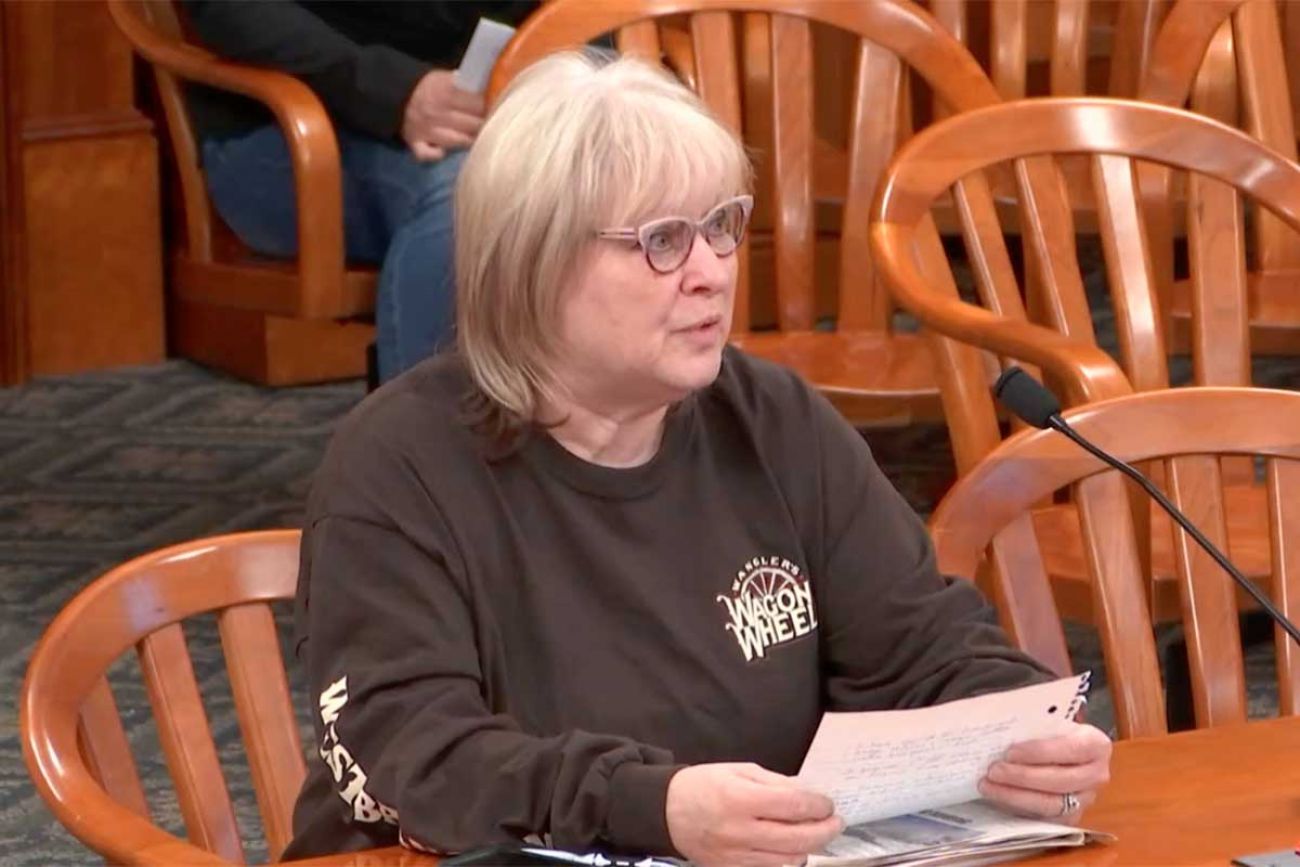As COVID slows, Michigan restaurants urge Whitmer to ease ‘nightmare’ limits

LANSING — Sue Wangler fought back tears Thursday describing a “rollercoaster” ride she fears will end with bankruptcy for the restaurant she and her husband bought with retirement money after he beat cancer two years ago.
They had just made it through their first winter as restaurateurs when COVID-19 hit Michigan in March 2020, forcing them to close for seven weeks, Wangler said in testimony before the Michigan House Oversight Committee.
Wanglers Wagon Wheel in West Branch eventually re-opened for takeout three days a week, but then full-cost licensing fees and insurance bills came due, Wangler said. So they took out another loan and carried on, reopening again at 50 percent capacity before the state ordered restaurants to close dining rooms a second time from Nov. 18 to Feb. 1.
Related stories:
- Michigan bars, restaurants can reopen Feb. 1 with restrictions, state says
- Michigan restaurants still likely to struggle after reopening amid COVID
- Michigan restaurants frustrated by tentative Feb. 1 reopen date
- New financial help for Michigan small businesses amid COVID
- Opinion | Dear Gov. Whitmer, our Michigan restaurants must open now to survive
They purchased plastic bubbles to use for outdoor dining, but the brutal Michigan winter destroyed those in four weeks, she said. They contemplated filing for bankruptcy then but spent another $18,000 to construct four steel structures outside their restaurant, which they’ve outfitted with new “ozone machines” and fog sanitizers inside.
Now, with indoor dining allowed again but only at 25 percent capacity, the family has sunk $165,000 into a business that “we will never see a profit from” and are unsure will survive, Wangler told lawmakers.
“If something doesn't change we will lose our restaurant,” said Wangler, adding that her 66-year-old husband “deserves to retire” but instead has kept working as a trucker five or six days a week.
Restaurant and hotel operators statewide shared similar stories Thursday before the Michigan Legislature, where majority Republicans and at least one Democrat have urged Gov. Gretchen Whitmer to ease ongoing COVID-19 restrictions they say are slowly killing the food and hospitality industry that typically employs upwards of half a million people.
Whitmer argues her policies have slowed the spread of the deadly virus, citing case counts and positivity rates that have declined for five consecutive weeks. Over the past week, only five states had lower daily case rates than Michigan, according to Centers for Disease Control data, which shows neighbors including Indiana and Ohio with less stringent regulations have fared worse.
The hospitality industry contends those falling counts mean it is time to ease indoor dining rules currently set to last through March 29.
The Michigan Restaurant and Lodging Association on Wednesday proposed a reopening plan that would base restrictions on daily COVID-19 testing positivity rates, allowing capacity limits and curfews to tighten or loosen depending on specific metrics.
The current 25 percent capacity limit is a “nightmare,” said Wangler, who noted her restaurant typically seats up to 120 people indoors but is only allowed to seat 30 customers at a time now.
“I’ve applied for every (government) loan out there, but I got zero,” she told lawmakers. “We've not gotten any help. These loans are like a lottery.”
The pandemic has been the most difficult period for bars and restaurants since prohibition, said Marji Cheadle, co-owner of Dagwood’s Tavern and Grille in Lansing, which Whitmer had used as a pre-pandemic meeting spot for talks with legislative leaders.
Operating at 25 percent capacity allows Dagwood’s to “keep our reputation and our staff comfortable,” but it is not a sustainable business model, Cheadle said. “Twenty-five percent capacity is a Band-Aid on an artery.”
Under the industry proposal released Wednesday, bars and restaurants could:
- Operate at 50 percent capacity with seated service only but no curfew at the state's current seven-day positivity rate of 3.9 percent.
- Operate without limits if the rate dropped below 3 percent.
- Return to a 10 p.m. curfew and mandatory contact tracing if seven-day averages climb to 7 percent, limit capacity to 25 percent if the rate topped 10 percent and close indoor dining if they surpassed 15 percent.
Asked about the industry proposal on Wednesday, Whitmer acknowledged the "last 12 months have been hard for everyone" and said "the burden's been greater for the restaurant industry, there's no question."
But the governor defended the state's cautious approach, saying Michigan is "in a stronger place than most other places in the nation right now" because "we're being very thoughtful about incrementally re-engaging sectors of our economy that just inherently pose a higher risk."
Michigan has confirmed 577,203 cases of COVID-19 and 15,188 related deaths since March. But despite the emergence of new variants, case counts have dropped significantly the past month.
Restaurant owners contend they are not the problem and note the virus has not surged since the state allowed dining rooms to reopen at 25 percent capacity at the beginning of the month.
As of Feb. 11, state and local health officials were investigating 736 new and ongoing COVID-19 outbreaks across Michigan. Only four were associated with restaurants or bars and in each case, the outbreak was limited to employees, not patrons.
Dozens of restaurants and bars, meanwhile, have temporarily lost food or liquor licenses for refusing to follow the public health rules.
The Michigan Liquor Control Commission last week suspended the liquor license of the Wooden Nickel in Marquette in the Upper Peninsula because the bar exceeded the 25 percent capacity limit on multiple occasions, continued indoor service beyond the 10 p.m. curfew and failed to follow face mask rules.
But most restaurants are doing everything they can to follow safety rules, said Brandon Hopkins of the Pale Blue Smoking Co., a catering service and barbecue restaurant in Gladwin in northern Michigan.
“We know that the pandemic is real, and we understand that is contagious, and we understand the need to protect our community,” he said.
“That's why we followed all of the protocols since last March that we were asked to, and our inspection reports are flawless. And it’s why it feels like our industry has been unfairly targeted as a source of massive spread of the virus.”
See what new members are saying about why they donated to Bridge Michigan:
- “In order for this information to be accurate and unbiased it must be underwritten by its readers, not by special interests.” - Larry S.
- “Not many other media sources report on the topics Bridge does.” - Susan B.
- “Your journalism is outstanding and rare these days.” - Mark S.
If you want to ensure the future of nonpartisan, nonprofit Michigan journalism, please become a member today. You, too, will be asked why you donated and maybe we'll feature your quote next time!




